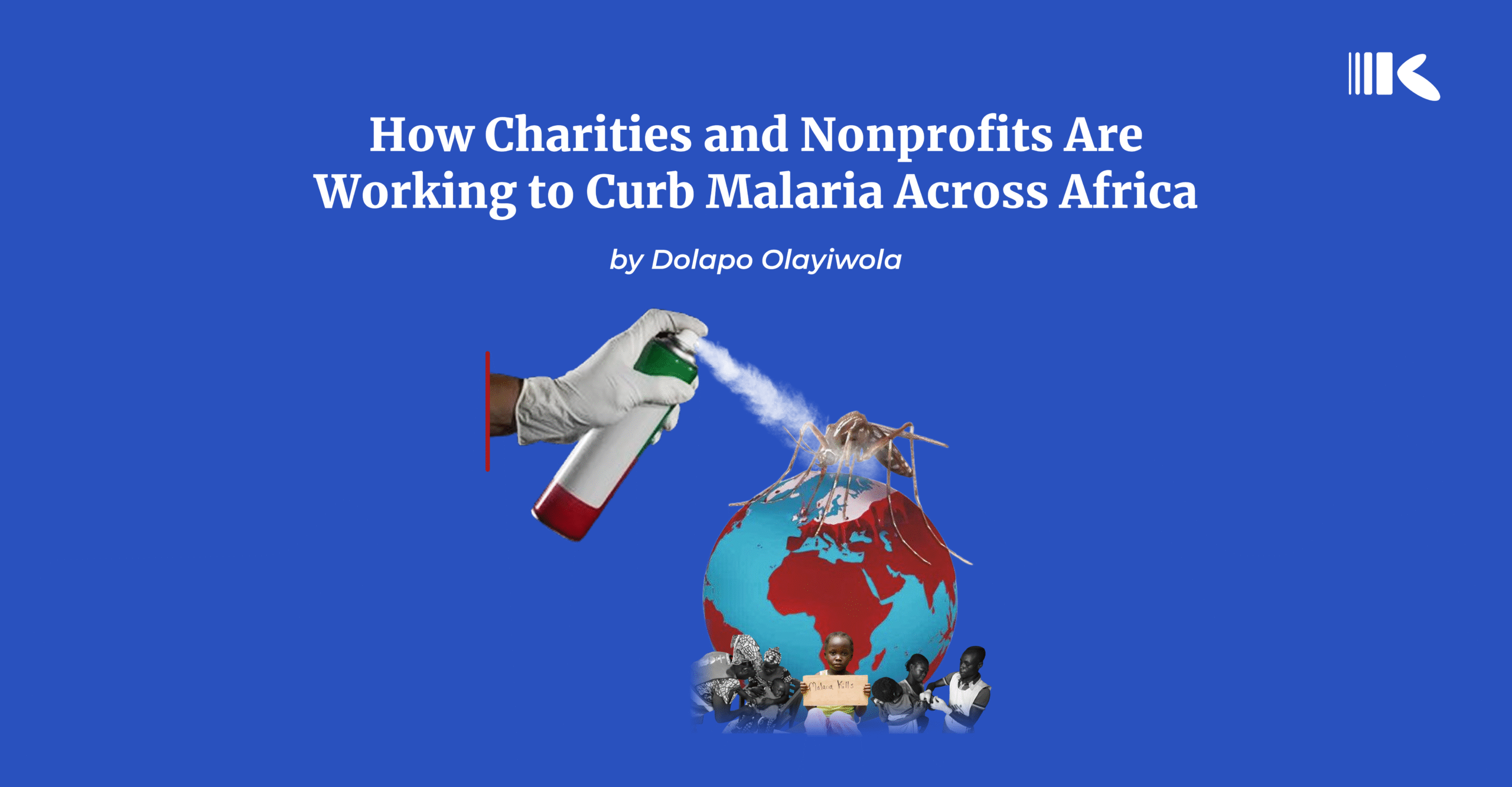Africa is a continent of immense promise—rich in people, culture, and natural resources—yet it continues to battle some of the world’s deadliest diseases.
Despite rapid urban growth and scientific progress, illnesses like cancer, malaria, and tuberculosis still exact a heavy toll on millions of lives.
Malaria, in particular, remains a persistent threat. According to the World Health Organization (WHO), the African region recorded 233 million malaria cases in 2022, with Nigeria, Ethiopia, and Uganda accounting for most of them. The region bears 94% of global cases and 95% of annual deaths, which exceed 580,000.
This crisis has prompted a wave of research initiatives, public health programmes, and long-term investments aimed at turning the tide.
Nonprofit organizations and charities now stand at the forefront of this effort by delivering treatment, funding vaccine research, and supporting national malaria control programmes across the continent.
Kryvent set out to understand how these nonprofits are helping shape long-term solutions to Africa’s malaria challenge, and which organizations are driving the most impact on the ground.
NGOs Leading the Battle Against Malaria in Nigeria
Malaria Consortium: This is one of the most active organizations in Nigeria’s fight against malaria, it leads Seasonal Malaria Chemoprevention (SMC) programs across higher risk states, supports vaccine pilot rollouts, and distributes insecticide treated nets (ITNs).
Its campaigns have significantly reduced infection rates during peak seasons, particularly in states like Kebbi and Bayelsa through its Oxford R21 malaria vaccine and shaped national malaria policy in partnership with the Ministry of Health.
U.S. President’s Malaria Initiative (PMI): As one of Nigeria’s largest malaria funders, PMI supports ITN distribution, diagnostics, preventive care for pregnant women, and SMC for children through partners like Management Sciences for Health (MSH).
Its large scale funding and co-ordination provide the backbone for many state level malaria programs. For context, in 2023 alone, it contributed $73 million toward tackling malaria and training 7,200 health workers to strengthen their skills.
Society for Family Health (SFH): A leading Nigerian nonprofit, SFH delivers nets, coordinates SMC campaigns, and drives behavioral change programs in local communities.
Its strong grassroots presence ensures effective last-mile delivery and improves awareness about malaria prevention. By the end of 2022, SFH had distributed about 22 million nets in six states (Katsina, Kaduna, Niger, Kano, Jigawa, and Ogun).
UNICEF / Gavi: Both organizations are central to Nigeria’s malaria vaccine rollout. They also integrate malaria prevention into child and maternal health programs, ensuring broader and more coordinated healthcare delivery.
According to a report by Nairametrics, Nigeria received 846,000 doses of the R21 malaria in 2024 in partnership with the National Primary Health Care Development Agency (NPHCDA).
Médecins Sans Frontières (MSF): MSF provides emergency malaria treatment in conflict affected and remote regions, supports local clinics, and runs outbreak response operations in areas with weak health infrastructure. In Maiduguri, MSF has supported the treatment of 24,620 confirmed malaria cases as of the reports given in October 2024.
How These NGOs Tie Into Long-Term Solutions
- Prevention tools at scale: Insecticide-treated nets (ITNs), SMC, and vaccines are important. NGOs like Malaria Consortium, PMI, and MSF are pushing these tools into more communities every malaria season.
- Strengthening health systems & supply chains: Having rapid diagnostic tests, antimalarial drugs, trained staff—all in place when, and where needed—is vital. Without strong systems, nets and vaccines cannot be used or distributed properly. These NGOs help build that infrastructure.
- Local ownership & sustainability: Local NGOs like SFH, plus national government partnerships, enhance sustainability. When interventions are community-led or locally managed, uptake tends to be better, adaptation to local conditions is faster.
- Advocacy and funding mobilisation: These Organisations and International partners work to keep malaria high on global health agendas, ensuring funding doesn’t lapse. Nigeria in particular needs steady funding commitments.
Challenges and What NGOs Must Navigate
- Drug resistance and Insecticide resistance: Some malaria parasites and mosquitoes are becoming less susceptible to standard tools. NGOs must monitor this and support alternative tools.
- Funding fluctuations: Many programmes depend on external donor funding; instability or shifts in donors’ priorities threaten continuity. An example is the recent cut in U.S. aid funding, which is said to have affected several African countries negatively, including Kenya and Ethiopia.
- Logistics and access, particularly in rural or conflict-affected zones: Distribution of nets, access to clinics, reaching remote or insecure areas remain difficult.
- Behaviour change, community engagement: Even where nets are available, or vaccines are delivered, cultural practices, trust issues, or misinformation can reduce uptake. Local NGOs with community presence (like SFH or MSF in certain states) are especially important here.
Conclusion
Nonprofit organizations are key to curbing malaria in Africa. Organisations like Malaria Consortium, PMI, SFH, UNICEF/Gavi, and MSF each bring particular strengths; Scale, Innovation, Infrastructure, Local trust, and Advocacy.
As Africa struggles simultaneously with diseases like cancer, HIV/AIDS, and emerging infections, the experience with malaria shows what works: consistent funding; integrating prevention, treatment, and system strengthening; local ownership; innovation; and collaboration.
If these elements continue and scale, the prospect of dramatically reducing malaria burden—and possibly eliminating it in many regions—becomes more realistic.
